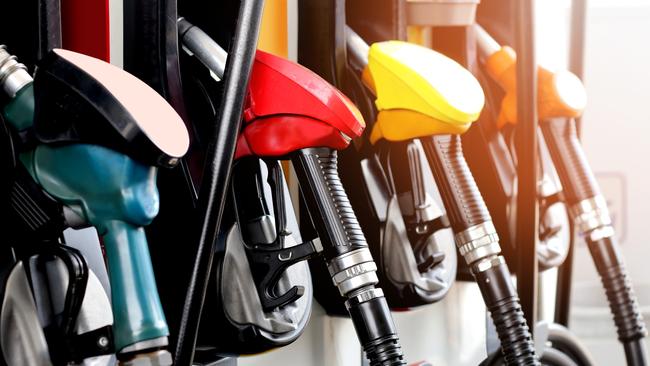Ten ways to save money in 2020
Experts have revealed how Australians can cut their costs and get ahead financially in 2020. These are some of the best ways to save cash.
Resetting your refinances now not later is critical to getting ahead of your money matters in 2020.
Many of us start off determined to get our financial affairs in check to ensure the year kicks off in good shape, but it takes some strong determination and planning to stick to our goals.
New research from software accounting firm MYOB quizzed 1000 Australians and found 58 per cent will create a household budget this year.
And 25 per cent of people are planning to stash more cash in 2020.
Here’s 10 ways you could make some simple savings in the next 12 months.
1. HOME LOAN
The best deals on owner occupier principal and interest variable rates start with a “2” and borrowers should be chasing deals no higher than 3.25 per cent.
On top of this experts are predicting one, possibly two more rate cuts in 2019.
On a $300,000 30-year mortgage, switching from a rate of 4 per cent to the lowest available at 2.69 per cent a customer would reduce monthly repayments by $217 to $1215 and cut interest charges by $78,100 over the loan term.
ME’s spokesman Matthew Read said the easiest way to save “is to review your rate and either renegotiate your rate or refinance if you find something better”.
It could also be worth fixing your loan – some fixed deals are cheaper than variable deals.
2. CREDIT CARDS
Australians owe a massive $43 billion on credit and $27.5 million is accruing interest.
For customers paying interest on their debt each month the easiest way to save is to switch to a zero per cent balance-transfer card.
The longest honeymoon interest-free periods spans 26 months.
Mr Read said for those carrying card debts, “look to consolidate the debt into one card” and “review your behaviour”.
“If you are not paying the balance off at the end of each month you really should be on a lower rate card,” he said.

3. BUY NOW, PAY LATER SCHEMES
These schemes including Afterpay, Zip Pay and Humm are booming in popularity.
While they don’t hit customers with interest charges, fees do apply if a person is late on their scheduled repayments so watch out.
MYOB’s head of financial services Jo-Ann Chung said there has been a dip in “credit use”.
“We are seeing a real shift from credit to using your own money,” she said.
This includes using these types of schemes instead of credit cards.
For Afterpay users if a scheduled payment is not processed on or before the due date an initial $10 late fee apples and a further $7 if the repayment remains unpaid 7 days after the due date.
4. SUPERANNUATION
Australians have a whopping $2.9 trillion in superannuation savings and Industry Super Australia’s chief executive officer Bernie Dean said people with some spare time on their hands over summer should review their accounts to ensure their retirement affairs are in order.
“It’s like the choosing the perfect beach cocktail, you need to get the mix right,” he said.
This includes choosing the right fund and best investment option to suit your needs.
Mr Dean warned, “too many people have too many accounts, consolidating accounts is really easy” which stops members people paying multiple fees.
5. TELCO
Competition between the telcos has never been hotter so consumers should be chasing cheap deals.
There’s plenty of choice on the market and smaller carriers often offer cheaper deals than the big guys and they also run off either Telstra, Optus or Vodafone’s networks anyway.
There are some amazing deals to be snared, particularly for those who already have their own device.
For SIM-only plans with 10GB of data some deals start at just $24 per month – check comparison website whistleout.com.au to compare deals.

6. ENERGY
New data from MYOB found 39 per cent of Australians expect to pay more for utilities in 2020.
Grab your last energy bill to find out how much energy you chewed through recently and then visit the government website energymadeeasy.gov.au to seek out a better deal.
If you’re in NSW go to service.nsw.gov.au or in Victoria visit compare.energy.vic.gov.au.
7. PETROL
Depending on where you live petrol prices vary significantly – in many capital cities in 2019 motorists were hit by charges of more than 170c/l.
It certainly pays to do a quick online search to see what petrol stations are charging before you fill up at the bowser.

Sign up to popular apps including Petrol Spy or Fuel Map Australia, which have recent price updates of what it will cost you at the bowser.
Don’t get sucked into using petrol vouchers unless they give you good value.
MORE NEWS
First home buyers can crack into market sooner
Massive January 1 changes that will cost Aussies more
Barefoot Investor’s Afterpay Christmas warning
Ice islands bring drugs worth $377 a gram to Australia
8. FOOD DELIVERY
We are a nation that’s addicted to food delivery services, financial comparison website Mozo’s spokesman Tom Godfrey said.
“We are getting quite lazy and that laziness and convenience of having your dinner delivered does come at a significant cost if you are trying to save,” he said.
“Stop ordering food delivery, you could save $3120 a year – the equivalent to two takeaway meals a week costing $60 in total,” he said.
Mr Godfrey urged people to go back to basics and prepare their own meals at home to save.
9. GROCERIES
The MYOB research found 30 per cent of Australians expect to pay more for groceries this year, but there are simple ways to save at the checkout.
“When it comes to saving on your grocery shop each week it’s really important to write a list and compare prices online before you head instore,” Mr Godfrey said.
“Buy what you need, one of the big costs is impulse purchases particularly if you go shopping with your kids.”
Shop with a list and stick to doing a weekly shop.

10. COFFEE/LUNCHES
It’s these smaller costs that quickly add up.
Coffees are often anywhere from $3 to $5 a pop, so look at cutting back on these and making your cup of coffee at your workplaces.
And use leftovers from the night before or cut your own sandwich to avoid wasting money on lunch while at work.

